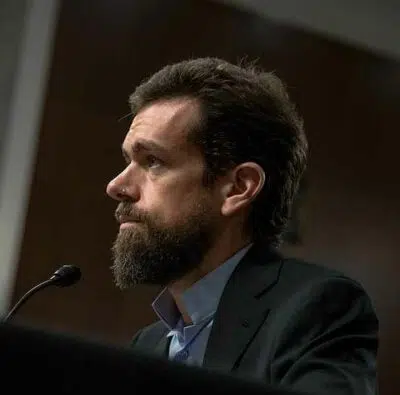Twitter And The Dead Internet Theory
by David Reavill
Yesterday, Elon Musk, the peripatetic multi-billionaire CEO of Tesla Motors, among other ventures, canceled his merger agreement with Twitter, the massive online “microblog” site.
Attorneys for Mr. Musk sent a carefully worded letter to Jack Dorsey, CEO of Twitter, and the Securities and Exchange Commission. The letter began by saying:
“As further described below, Mr. Musk is terminating the Merger Agreement because Twitter is in material breach of multiple provisions of that Agreement, appears to have made false and misleading representations upon which Mr. Musk relied when entering into the Merger Agreement…”
In this opening sentence, Skadden Arps, Musk’s attorneys and perhaps the nation’s most significant corporate finance law firm, accuses Twitter of “false and misleading representations.” In other words, Musk et al. are accusing Dorsey and Twitter of fraud.
This letter may seem a little harsh if you’re unfamiliar with the arcane world of Mergers & Acquisitions. That’s a mighty big accusation. And when made by a firm like Skadden, Arps carries a special note of severity. Why didn’t Musk pick up the phone and tell Dorsey, “the deal is off?” That might seem like the gentlemanly thing to do.
The answer is that there is so much more to this deal than meets the eye. Buried beneath the surface is an outstanding financial liability, to say nothing of potential harm to the reputations of both Dorsey and Musk.
Let’s begin by looking at the accusation that Musk is making. When Musk and Dorsey started negotiations, both sides agreed to disclose all material facts fully.
Musk agreed that Twitter could examine his books. Twitter could verify that he had the purchase money.
Twitter agreed to open its books. To allow Musk to see where Twitter gets its income.
Twitter’s income now revolves around millions of people who “Tweet” daily. As you know, Tweeting is that somewhat addictive practice of letting the world know just how you feel—announcing to the entire Twitter Universe in a 280-character screed. To those of us who use Twitter, it can be incredibly exhilarating.
Twitter users, those of us who “tweet,” is called “Monetized Daily Active Users” (MDA).

Terminating the agreement to purchase Twitter, Musk says that Twitter overstates the number of MDAUs. They have nowhere near the number of active users they claim. Musk then details how he has repeatedly requested Twitter to provide a verified count of Active Users, but essentially Dorsey has stonewalled. He refused to give that data.
Twitter acknowledges that many of its users are not real people. Some of the Tweets that make up the daily volume of Twitter are, in fact, “bots.” Computer-generated, automatic responses. And because these “bot tweets” don’t represent real people, there is no way to monetize these tweets.
Just like that, we’ve stumbled into the “Dead Internet Theory.” A “Theory” originates in the rumors and innuendo of many of the programmers and support staff for internet providers—places like Twitter.
For years, there has been an underlying murmur that many internet users/tweeters are not real. Last year, Kaitlyn Tiffany created a real stir when she wrote in the Atlantic, “Maybe You Missed It, But The Internet Died Five Years Ago.” Ms. Tiffany and all the Main Stream Press have gone out of their way to deny the concept of a “Dead Internet.”
After all, millions, no billions of dollars ride on the proposition that internet users are real, living, breathing people. And that you, Mr. or Ms. Businessperson can make millions by advertising to these real people.
In short, Tiffany and the Mass Media make the case that the internet is the nation’s new commercial marketplace. They contend that the internet has supplanted traditional forms of advertising like the written media, radio, and television to become the new place to sell and advertise.
The Dead Internet Theory (DIT) ultimately challenges that worldview. The DIT claims that a substantial portion of internet traffic is simply Artificial Intelligence generated “bots.”
For Elon Musk, this was the terminal issue. If half of Twitter users were really “bots,” then he would be paying twice what the company was worth. Regardless of the percentage of bots, they represent zero future income for Musk. They are merely dead weight.
So, Musk called out Dorsey.
Repeatedly Musk asked Dorsey to provide the actual number of active users, less the number of mere bots. Dorsey refused. On at least three occasions, the head of Twitter failed to comply with Musk’s request.
Refusing was an odd response by Dorsey when you think about it.
Here is one of the original creators of a “go-to” internet website—a true internet success story. And a long-time defender of the internet as a commercially viable platform.
Yet, when asked to provide the “numbers,” Dorsey refuses.
Perhaps there’s more to this Dead Internet Theory than I thought…




Pretty sure Mr. Musk knew the twitter lowlies were going to lie, deceive, adulterate, doctor, and warp information—just as those who are paying attention knew they would. Funny thing about it is that twitter got busted doing so, as predicted. Added funny is that now twitter got caught in their own nets and are subject to SEC investigatin for fraud… Read more »
Thank you David. Well written and most enlightening.
In the ned it is common sense. Sell me a team of horses capable of a given load and when I pick them up there are only two, so why should I pay full price.
Why does this article call out Dorsey as the person who isn’t responding to Musk? Dorsey is (and has been for some time) out of Twitter. He isn’t even on the board anymore. If Dorsey holds no title or position at Twitter, how could he be the one withholding information? Did this writer not do ANY homework?
I have come to the conclusion that these same twitter bots account for 75% of the votes Uncle Joe got in the election.
I guess Twitter is just another CNN.